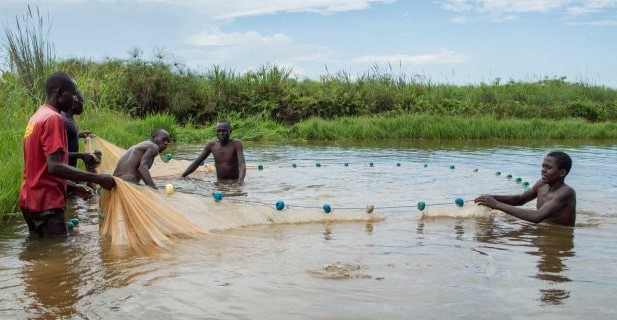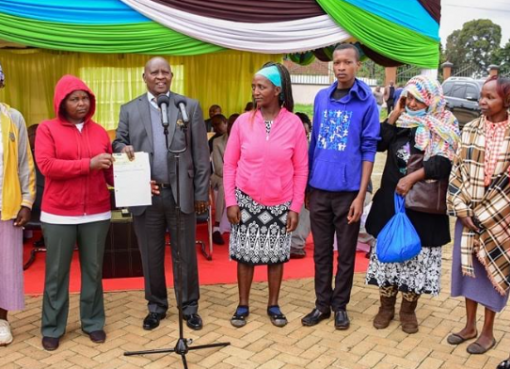The rising number of children dropping out of school to engage in fishing activities around Lake Victoria in Kisumu County has raised alarm about child labour in the region.
Dunga Beach Management Unit (BMU) vice chairperson, Maurice Misodhi reiterated that poverty is the key driving factor forcing children to leave school and venture into fishing or engage in cheap labour along the lake shores.
Misodhi said the kids are lured by the quick cash at the beaches, leading to school absenteeism and high school dropout rates since the learners are drawn away from their studies to work on the beaches.
He pointed out that some parents have neglected their parental responsibilities giving the children an excuse to roam the beaches instead of attending school.
“Many of the victims we encounter say they were sent by their parents to do menial jobs at the beach in order to earn a living,” he noted.
He also expressed concern about young boys being exploited by their parents to work as laborers on night fishing operations, particularly in fishing for omena (sardines), with the entire catch being handed over to their parents to sell.
Speaking at a workshop organized by the International Labour Organization (ILO) focused on developing capacities and frameworks for addressing child labour at Dunga Beach, the BMU vice chair underscored the need to sensitize the fishing community members on the dangers of child labour.
Misodhi urged parents to fulfil their parenting roles to address the salient issues.
Mike Owala, an advocate for children’s education around the lake, noted that schools within Dunga Beach catchment, such as Nanga Primary, Joel Omino Secondary, Dunga Primary, Joel Omino Primary, and Nanga Secondary, are particularly affected by child labour. These schools record high school absenteeism and dropout rates among the enrolled learners.
Owala who represented the learning institutions at the forum pointed out that both girls and boys are being exploited and are subjected to working just like adults contrary to Kenya’s constitution.
He highlighted that boys who are of school going age are predominantly involved in fishing expeditions while girls often hawk the fish catch at local markets.
In response to the rising dropout rates, approximately 100 children who had left school to find employment on the beach were rescued and provided support to resume their studies by the Dunga BMU.
The BMU, in collaboration with corporate partners, has established a fund to offer full scholarships to bright students from disadvantaged backgrounds who are at risk of dropping out due to financial difficulties.
“The fund sponsors orphans and children from poor families, enabling them to continue their education. Additionally, the BMU runs a program providing sanitary towels to teenage girls, helping to alleviate poverty and maintain their dignity,” Misodhi stated.
According to the International Labour Organization (ILO), the agriculture sector accounts for over 80 percent of child labour in Africa.
In the lake region, the fisheries sub-sector which is the dominant economic activity is ranked as the key contributor to child labour.
It is against this backdrop that the ILO in collaboration with the Federation of Kenya Employers (FKE) has launched a campaign to enhance the Dunga BMU’s capacity to combat child labour in the fisheries industry.
Under the Strengthening Capacity of Governments to Address Child Labour, Forced Labour, and Violations of Acceptable Conditions of Work in Sub-Saharan Africa (CAPSA) project, ILO is partnering with national and county governments and other stakeholders to eliminate child labour by 2025.
The Engagement and Partnership Development specialist at ILO, Andrew Odete stated that they held a three-day workshop in Kisumu County seeking to train and support the Dunga BMU in developing and implementing a framework to address child labour.
“We are working with Dunga BMU to raise awareness about child labour and its effects. We will assist them in developing child protection policies and establishing a committee dedicated to eradicating child labour at Dunga Beach,” Odete explained.
The Dunga BMU Committee on the Elimination of Child Labour will oversee operations within the fisheries value chain to promote child protection and prevent child labour.
Odete said the committee will include labour officers, representatives from local schools, local administration, community leaders, children’s organizations, and children themselves, adopting a community-based approach to addressing the issue.
By Robert Ojwang’





